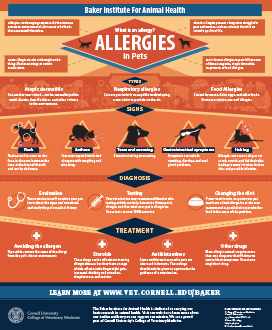Dog Daycare Mental Stimulation
Dog Daycare Mental Stimulation
Blog Article
Can Canine Childcare Reason Illness?
Doggie daycare is a fantastic method to socialize your pet in a safe and controlled environment. Just like kids, dogs at daycare can capture a selection of bacteria.
A few of these consist of: Canine distemper - an airborne virus that assaults the respiratory system and gastrointestinal systems with symptoms including throwing up and bloody looseness of the bowels. This is very infectious and can be deadly. Avoidance includes an effective injection, and trustworthy facilities normally require this vaccination.
Dog Distemper
Similar to children who go to college, dogs at a pet dog park or childcare can get various transmittable diseases. These can include kennel coughing, manage, ringworm, canine influenza, distemper, rabies, and parvovirus (parvo).
While there are several diseases that trigger coughing, high temperature, loss of appetite or seizures, the combination of these signs and symptoms with the development to a nervous system disease is one-of-a-kind to distemper. This can result in death, particularly in pups and unvaccinated adult canines.
Distemper is spread out largely by direct get in touch with in between dogs, but can likewise be sent through breathing secretions or by contact with common food bowls, supplies, equipment and surfaces. The infection is lost in bodily secretions, and polluted hands, feet, noses and mouths. Young puppies and strays are most at risk to infection.
Pooch Influenza
An extremely transmittable viral condition that affects dogs (and in unusual instances, pet cats). It is spread by respiratory secretions and polluted things, such as chains, playthings, food bowls and collars. It can also be transferred from human hands to the mouth and nose of infected pet dogs.
Signs and symptoms consist of coughing, sneezing, drippy nose and eyes, high temperature and loss of appetite. Serious instances can bring about pneumonia.
Due to the fact that this is a relatively new illness, many pet dogs have no all-natural resistance versus it and will become infected when first subjected. Injections are readily available. Reliable day cares and click here to read boarding facilities will require all canines to be as much as date on their influenza, bordetella and parainfluenza vaccines. If your canine is experiencing signs of kennel cough, it's finest to keep them home from day care up until they are clear of the disease.
Canine Cough
Canine infectious tracheobronchitis, more commonly known as kennel cough, is a multifactorial disease caused by a variety of infections and microorganisms. Normally, influenced pet dogs establish a dry hacking cough that is made worse by workout or exhilaration and can last for weeks. Extra extreme situations can result in bronchopneumonia and require aggressive treatment consisting of a hospital stay for IV-provided prescription antibiotics, oxygen therapy and fluids.
The most common cause of kennel cough is the bordetella microorganism, however infections can likewise be caused by herpesvirus, parvovirus and adenovirus. It is transferred through droplets launched when contaminated canines sneeze or cough, dog-to-dog contact and sharing things such as food and water bowls or playthings. Inoculation for this disease is readily available and is suggested for pet dogs who spend time in boarding facilities, brushing stores, doggy daycare and training courses along with those taking part in canine sports or team canine walks.
Canine Parvovirus
Canine parvovirus (CPV) is one of the most harmful disease that affects unvaccinated pets. The virus assaults the gastrointestinal system, leading to throwing up and serious diarrhea. It also contaminates the bone marrow, causing a drop in safety leukocyte. The damaged immune system allows the infection to spread out rapidly. It is particularly deadly for pups and pet dogs of young age, but it can also strike grown-up canines and various other canids like coyotes and foxes.
This highly transmittable health problem is spread via direct contact with an infected pet, the polluted environment such as kennels and food bowls, and even the hands and apparel of individuals managing the canine. Inoculation for this health problem is effective, and credible day care and boarding centers will need it. The kennel coughing vaccine is typically recommended combined with the parvovirus injection.
Pooch Parasites
Bloodsuckers might be internal (worms) or exterior (fleas, ticks). Digestive parasites can create a range of troubles, however they are particularly severe in young puppies. As an example, hookworms connect to the intestinal tract wall and suck blood, leading to anemia in young puppies. Puppies might be infected with these bloodsuckers by consuming feces-contaminated dirt or through the mommy's milk during nursing. Young puppies may additionally become infected with whipworms, which are single-celled parasites that connect to the intestine and minimize nutrient absorption, causing persistent watery diarrhea.
Pet dogs can also be infected with tapeworms, heartworms, roundworms and giardia. If you see worms in your canine's feces, a visit to your vet is recommended for medical diagnosis and therapy. Parasite infections are avoidable with monthly spot-on therapies and regular cleaning of food, water and feces bowls.